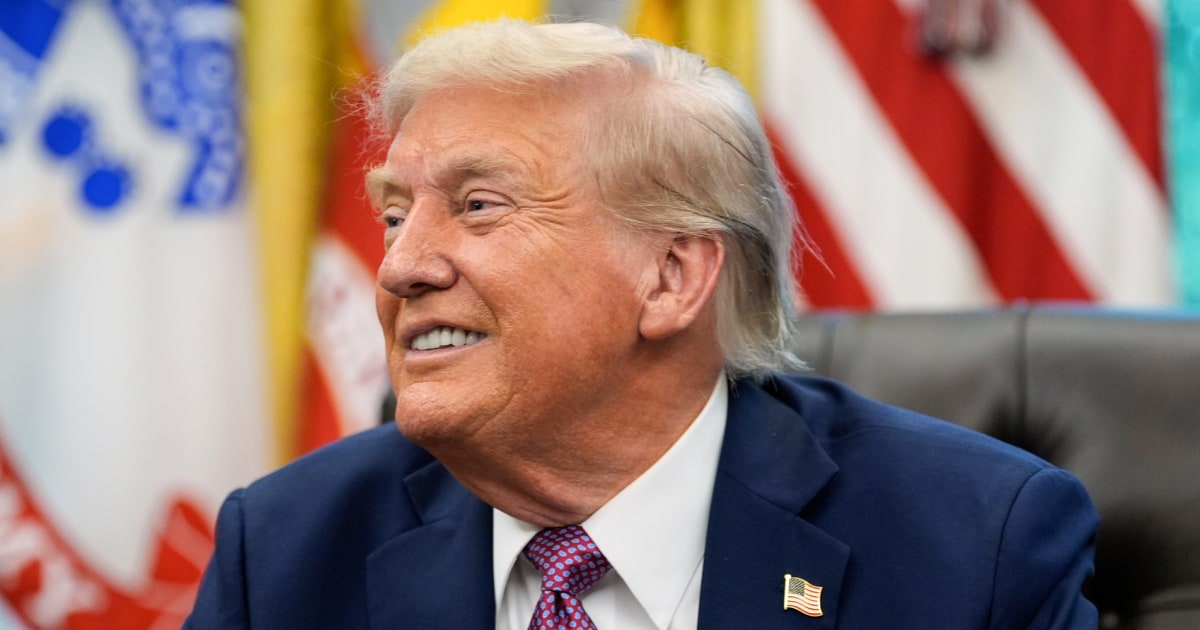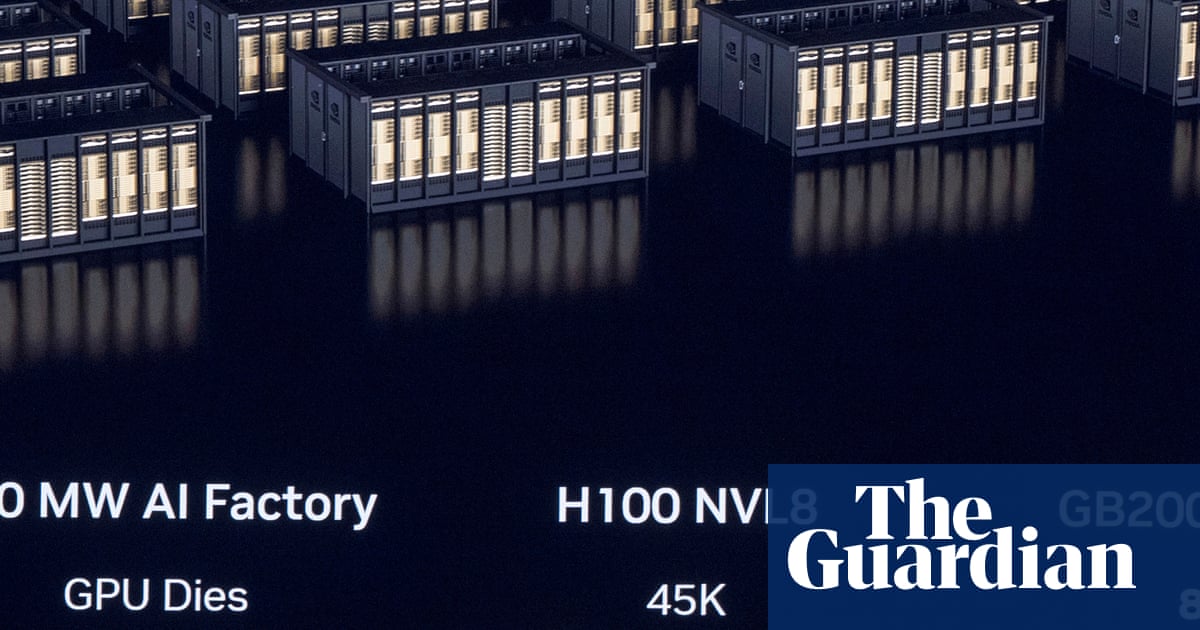Shayan Sardarizadeh & Kayleen DevlinBBC Verify
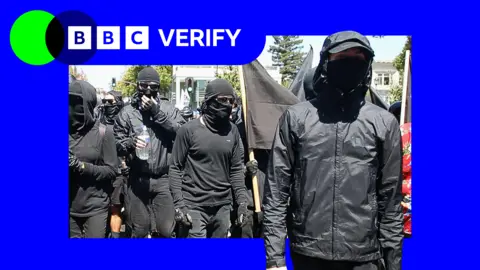 Getty Images
Getty ImagesUS President Donald Trump has said he will designate Antifa as a “major terrorist organisation” as part of his efforts to target the “radical left”, following the killing of conservative activist Charlie Kirk.
In a post to his Truth Social platform, Trump called the group a “sick, dangerous, radical left disaster” and pledged that the group would be “thoroughly investigated”.
Antifa – a decentralised, leftist movement that opposes far-right, racist and fascist groups – has long attracted Trump’s ire.
But experts have been quick to question how the president will actually target the group, which lacks a distinct leader, membership list or structure. In 2020, then-FBI Director Christopher Wray told Congress that Antifa was better defined as an ideology than as a formal organisation.
Antifa has remained a popular touchstone for some right-wing influencers and politicians who argue that it is a key component of a left-wing network they claim is seeking to undermine the US, free speech and gun rights.
What does Antifa stand for?
Antifa is short for anti-fascist. It is a loose, leaderless affiliation of mostly far-left activists.
The word Antifa comes from the German word “antifaschistisch”, a reference to a German anti-fascist group from the 1930s.
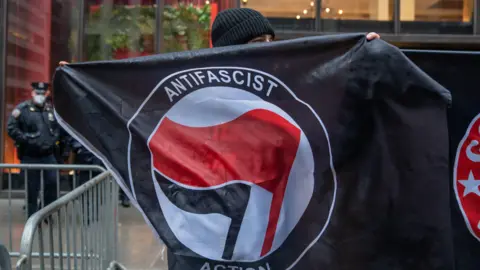 Getty Images
Getty ImagesWhile Antifa’s existence in the US dates back decades, it rose to prominence following Trump’s first election victory in 2016 and the far-right rally in Charlottesville in 2017, where various anti-fascist groups started to come together.
Since then, activists identifying with Antifa have routinely clashed with right-wing groups, both in heated arguments online and also in physical altercations across the US.
The lack of a centralised organisation means that Antifa cells tend to form organically, both online and offline, and its activists include anarchists, communists and hardline socialists who broadly share anti-government, anti-capitalist, pro-LGBTQ, and pro-immigration views.
But Antifa is sometimes used as a catch-all term by conservative politicians and commentators to include other liberal and left-wing groups that they politically object to.
Does Antifa engage in violence?
Critics say what sets Antifa apart from mainstream left-wing groups is the willingness of some of its activists to use violence to further their cause, which they in turn claim is in self-defence.
Activists often dress in dark clothing and cover their faces in public. Online videos viewed by the BBC show some carrying clubs, shields, sticks and pepper spray in rallies.
In 2017, around 100 masked activists carrying Antifa-linked signs and flags attacked a group of right-wing protesters in Berkeley, California, resulting in multiple arrests.
During the unrest that erupted in the US after the killing of George Floyd in 2020, a self-proclaimed Antifa activist, 48-year-old Michael Reinoehl, shot and killed a supporter of Patriot Prayer, a Portland-area far-right group. Reinoehl was subsequently shot dead by police.
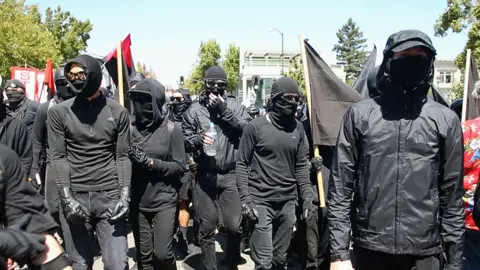 Getty Images
Getty ImagesAnti-fascist activists also regularly release the identities and personal details of those that they deem to be far-right activists. The tactic – commonly known as “doxxing” – aims to have people dismissed from their jobs and otherwise socially ostracised.
In the wake of Charlie Kirk’s killing, BBC Verify has seen messages from some self-identified Antifa members – on Reddit and X – defending the shooting.
Does Trump have the legal power to designate Antifa a terrorist organisation?
Trump has not said how he plans to go about designating Antifa as a terrorist organisation and we have asked the White House for more details.
The US government can designate a group as a Foreign Terror Organization (FTO) -the “legal criteria” for this states that the targeted group “must be a foreign organization”.
An FTO designation means members of a group can be banned from the US or removed from the country and gives the government the power to seize funding and target donors.
The State Department lists current FTOs, which include groups like ISIS and, increasingly, drug cartels from Latin America.
But it is unclear how these powers could be extended to Antifa.
“There is no legal mechanism I’m aware of that would formally establish any group as a domestic terror organisation”, Luke Baumgartner, a research fellow at George Washington University’s Program on Extremism, told us.
“As far as I know it’s just a proclamation on Truth Social which means nothing, and unless Congress wants to take concrete steps I don’t see that happening,” he said.
Other legal experts who spoke to BBC Verify pointed out that free speech rights under the First Amendment to the US constitution could limit Trump’s ability to implement the designation.
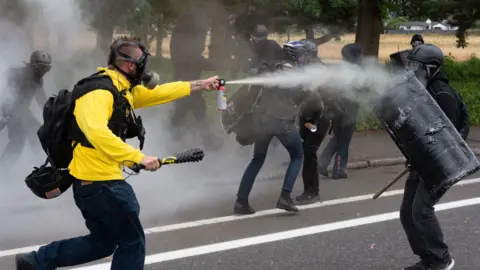 Getty Images
Getty ImagesProfessor David Schanzer, director of the Triangle Center on Terrorism and Homeland Security at Duke University, said: “The First Amendment protects the right of association, which encompasses the right of individuals to form groups and prohibits the government from interfering with the operations of those groups, unless of course, they have violated the law.”
“The president’s designation of such a group as a ‘major terrorist organisation’ does not change those fundamental constitutional rights,” he added.
Brad Evans – professor of political violence at Bath University – warned that Antifa’s lack of an organisational structure and membership “offers a remarkable opportunity to extend the [government’s] remit and apply it to anybody who may be assumed to belong to an organisation that is ill-defined”.
“This means that anybody suspected of belonging to Antifa, would need to disprove their association. The dangers of overreach are all too apparent.”
Other legal experts have questioned why the Trump administration cannot challenge Antifa under existing legislation tackling crimes like incitement to violence.
Why is the Trump administration targeting Antifa?
This is not the first time that Trump has targeted Antifa – he said he would declare the group a terrorist organisation in 2020 but did not follow through on this at the time.
His latest intervention comes as part of a wider campaign against the “radical left” following the Charlie Kirk killing, with the president declaring that: “Radical left political violence has hurt too many innocent people and taken too many lives.”
The authorities have said that Tyler Robinson – who is accused of Kirk’s murder – had a “leftist ideology” but have not provided much detail and he has not been directly linked to Antifa.
What do studies say about political violence in the US?
This week, the US Department of Justice (DoJ) removed a study into political violence in America which concluded that far-right extremism outpaced “all other types of violent extremism”.
The BBC asked the DoJ why the study, published in 2024 by the department’s research agency, had been removed. It said it had “no comment”.
BBC Verify has reviewed five independent studies that have looked into politically motivated attacks in the US going back decades, all of which suggest there have been more cases of political violence in the US committed by people assigned a right-wing ideology by researchers than a left-wing one.
However, as there is no consistent or universal definition of “right” or “left” ideology, it is difficult to measure trends in political violence over time.
Professor Robert Pape, from the University of Chicago said that recent years have seen “historic highs in political assassinations and assassination attempts” – with both Republican and Democratic politicians targeted.
“What we see in our data on what happens when a political leader blames one side for the violence is it produces more support for political violence, not less,” he added.
Additional reporting by Mike Wendling, Matt Murphy and Lucy Gilder

Source link

